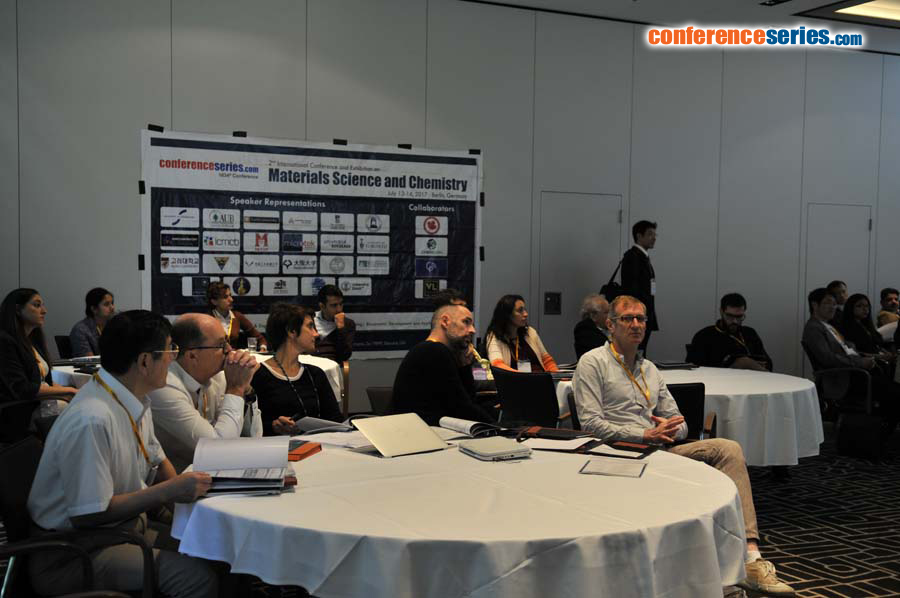
Mina Samadipour
K N Toosi University of Technology, Iran
Title: Mg2+ doped nano-hydroxyapatite/chitosan: Synthesis, characterization and study on bio-properties
Biography
Biography: Mina Samadipour
Abstract
Hydroxyapatite via the formula Ca10(PO4)6OH2 (HAP), which is an important member of calcium phosphate family, has been useful applications in biomedical, that is due to non-toxicity, biocompatibility and high osteoconductivity. There are many studies for improve HAP properties, one of them to make it more useful is doped HAP with different metal ions such as Ba2+, Co2+, Sr2+, Zn2+, etc. On the other hands incorporation of HAP with organic polymers such as chitosan (CS), gelatin, collagen, etc., that made it operational, would be used in biomaterial engineering. In this work, Mg2+ doped nano-hydroxyapatite/chitosan (Mg-nHAP/CS) fabricated by a sol-gel method. Product was characterized by powder X-ray spectroscopy (XRD), Fourier transform infrared spectroscopy (FTIR), scanning electron microscopy (SEM) and energy dispersive X-ray (EDX) spectroscopy. XRD results shown that dopants slightly effect on lattice parameters and crystallinity. On the other hand compared to the diffraction peaks of highly crystalline HAP, the broadening of the diffraction patterns shows low crystallinity of synthesized samples. According to the FTIR results it is shown that the typical peaks of (OH-) and (PO43-) groups vibrations at 3616 and 1081 cm-1. Based on the SEM images, it is observed that unique particle morphology with different shapes. The EDX spectra showed the elemental composition and all samples were pure. The synthesis samples were also found to be nontoxic based on the MTT assay. Bioactivity of a nHAp predicted from the apatite formation on its surface in SBF. Results suggested that crystallinity of nHAP decreases with doped by Mg2+ and natural polymer CS. The prepared product also showed improvement in nHAP biological properties.





